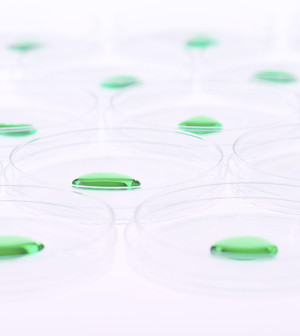- Could Your Grocery Store Meat Be Causing Recurring UTIs?
- Are You Making This Expensive Thermostat Error This Winter?
- Recognizing the Signs of Hypothyroidism
- 10 Strategies to Overcome Insomnia
- Could Artificial Sweeteners Be Aging the Brain Faster?
- Techniques for Soothing Your Nervous System
- Does the Water in Your House Smell Funny? Here’s Why
- Can a Daily Dose of Apple Cider Vinegar Actually Aid Weight Loss?
- 6 Health Beverages That Can Actually Spike Your Blood Sugar
- Treatment Options for Social Anxiety Disorder
New Year Often Ushers in Pledge to Quit Drinking


People with drinking problems often make a New Year’s pledge to stop or cut back on their drinking, but actually doing it can be a struggle, an addiction expert says.
“Twenty percent of the people who make New Year’s resolutions revert back to their old behaviors within a month,” Janina Kean, president and CEO of High Watch Recovery Center in Kent, Conn., said in a center news release.
She offered advice for people who want to bring their drinking under control.
“Drinking problems are overcome through residential inpatient rehabilitation programs, outpatient programs and Alcoholics Anonymous, so it is best to seek help via these avenues,” Kean said.
“Always seek treatment from evidence-based programs. These consist of a program with a medical license, and a clinical team run by a psychiatrist board-certified in addiction medicine, master’s prepared therapists, and a registered nurse team to administer medications. The program should also be able to recognize and treat co-occurring disorders as well as have an educational treatment program for families,” she advised.
The level of care required by a person is determined by the severity of their drinking problem.
“Someone with a severe substance use disorder will more than likely need a residential rehabilitation program, whereas people with a mild to moderate issue may be able to achieve remission with an outpatient program and Alcoholics Anonymous,” Kean said.
If you relapse during the holiday season, don’t be too hard on yourself. Instead, learn to forgive yourself. If you can’t bring your drinking under control again, you may have to go back into treatment, she said.
“Oftentimes, problem drinking is a symptom of a greater underlying problem. Just stopping to drink can bring these issues to the surface, so you must seek treatment for these issues as well, whether they are depression, anxiety, etcetera,” Kean said.
More information
The U.S. National Institute on Alcohol Abuse and Alcoholism has more about alcohol use disorders.
Source: HealthDay
Copyright © 2026 HealthDay. All rights reserved.










